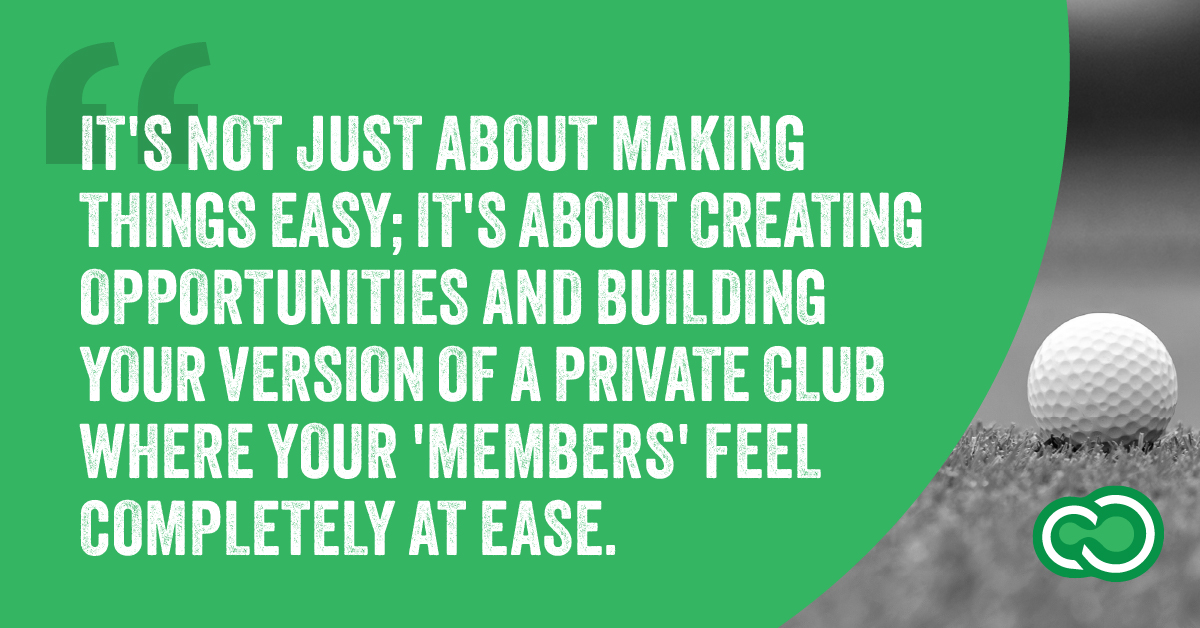In recent years, we’ve seen a dramatic shift across the daily fee golf landscape as savvy operators have adjusted their business model to capitalize on an opportunity to create steady, recurring revenue streams from their core customers. As a result, public golf courses are changing how they make money — taking a page from the book of private clubs.
Rather than relying on a larger pool of golfers who play a few times each season, daily fee operators are trying something different. They're moving towards a model built around retaining a base of golfers paying a regular fee, like a subscription, for the season. While the cash flow implications are a significant factor behind this shift, the move is about more than making money. It's about making golfers feel more connected and loyal to the course they play on.
From Single Rounds to Annual Passes
The transition from the antiquated model of single rounds to the adoption of annual passes represents a significant step forward in the industry. Faced with the realization that only 40% of golfers play more than one round annually at a specific course, daily-fee operators do all they can to capture increased customer share in a highly competitive market. The shift toward recurring revenue models, mainly through annual pass products and other loyalty programs, ensures consistent revenue streams for the operator and incentivizes players to play more of their rounds at one particular facility. Once a player has made a golf facility, their “home course,” opportunities abound for operators to drive ancillary revenue through purchasing merchandise, food and beverage, lessons and more.
Loyalty Programs as Game-Changers
Competition for today’s public golfer is fierce. Tee time aggregators maintain a considerable presence in the space. Daily fee facilities are forced to compete with one another and other recreational options requiring less than a five-hour commitment. These factors have driven daily fee golf facilities to develop creative loyalty programs that keep players connected to their facilities.
In response to the need for heightened player engagement, golf course management software platforms have been forced to adapt to the needs of today’s daily fee operators, who have become increasingly reliant on loyalty programs to drive their business. In recent years, these loyalty components have become a norm for most software systems — and the availability of annual recurring subscriptions that were once the exclusive domain of private courses are now more common than ever. These efforts are financially driven, but go further than just revenue. They represent a conscious effort to build a community around the golf course that gives players a sense of belonging and exclusivity, critical factors in driving customer engagement, trust, and loyalty.
Beyond a Discounted Rate
Amid this industry-wide shift, Club Caddie’s course management software has emerged as a leader by providing the tools and resources for daily fee operators to quickly adopt membership programs, loyalty programs, and more without the need to layer on additional software platforms.
Going beyond the standard offering of discounted green fees, Club Caddie simplifies the onboarding experience for subscribers to keep transactions quick and easy. Subscribers enjoy discounted rates on tee times and access to priority tee times and other member benefits formerly available only at a private club. For the operator, this creates a level of “stickiness” and connectivity with their customer, delivering a competitive edge over other daily fee facilities in the market that haven’t enhanced their tech offerings to align with today’s golfer.
The software's approach extends to various channels. It opens up opportunities for added revenue by offering discounts on drinks and meals, pro shop merchandise and virtually any other offering found at the course. Customizing the public course version of a “member portal” ensures that each subscriber's golf touchpoint with the facility is uniquely tailored to their preferences.
Ease of Check-In and Impulse Buys
Club Caddie’s software is all about making the player’s time at your facility better, and it's not just about the obvious perks. It allows golfers to pay quickly and encourages players to pick up a snack or something from the pro shop without any hassle, but it also goes beyond that. 
Picture this: a golfer shows up, check-ins are a breeze, and the player moves from the clubhouse entrance to the course with little more than a few exchanged words at the front desk that take place during just two to three clicks at the Point of Sale. It's not just about making things easy; it's about creating opportunities and building your version of a private club where your “members” feel completely at ease. By eliminating frustration and strategically offering discounts at the right time, you’re creating an environment for golfers to make spur-of-the-moment purchases and drive ancillary revenue across other outlets in your facility.
These “created opportunities” for purchase aren’t only for the benefit of the course, though. Through an intuitive member portal and mobile app, members can settle balances, reserve event spaces, and book tee times, among other things, with greater ease than ever before. Your entire club is at a member’s disposal at any moment. When it comes time for your club’s accounting department to do an audit, the data is compiled in a single customer record across the entire facility.
As the daily fee golf world continues to evolve, the mix of subscriptions and loyalty programs will become an even more significant part of the revenue mix at public facilities. Club Caddie and other intelligent software providers aren't just changing the nature of the transaction between golfer and facility; they're creating a vibe where golfers feel comfortable, invited, and an informed part of a community - just like they would at a country club.